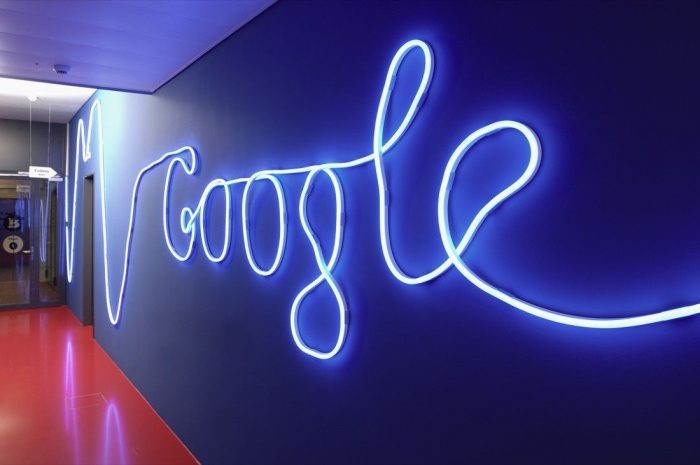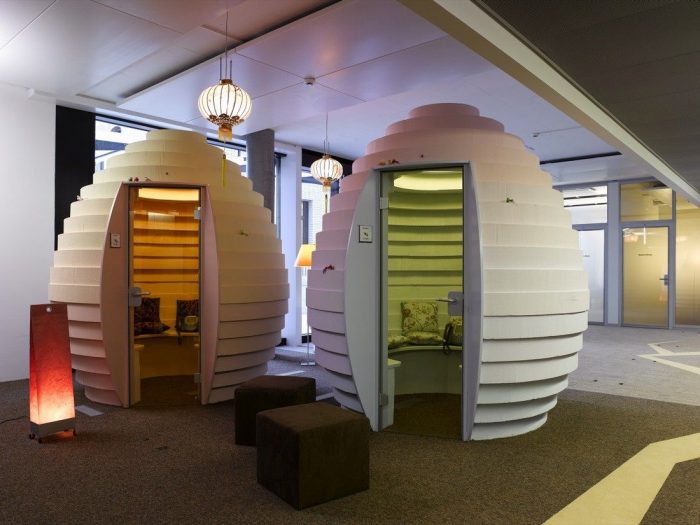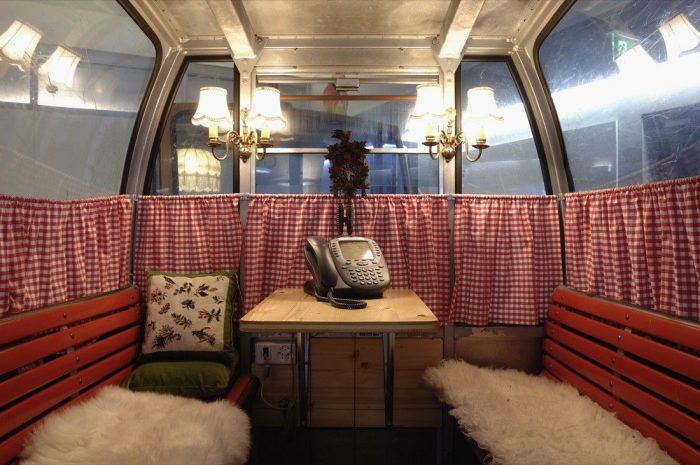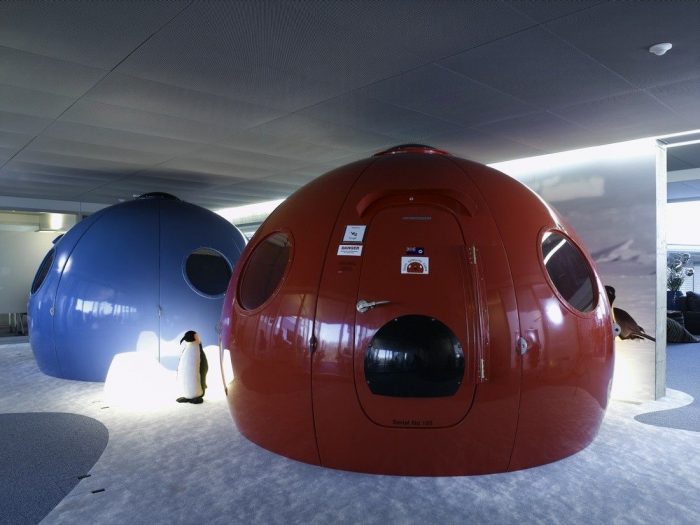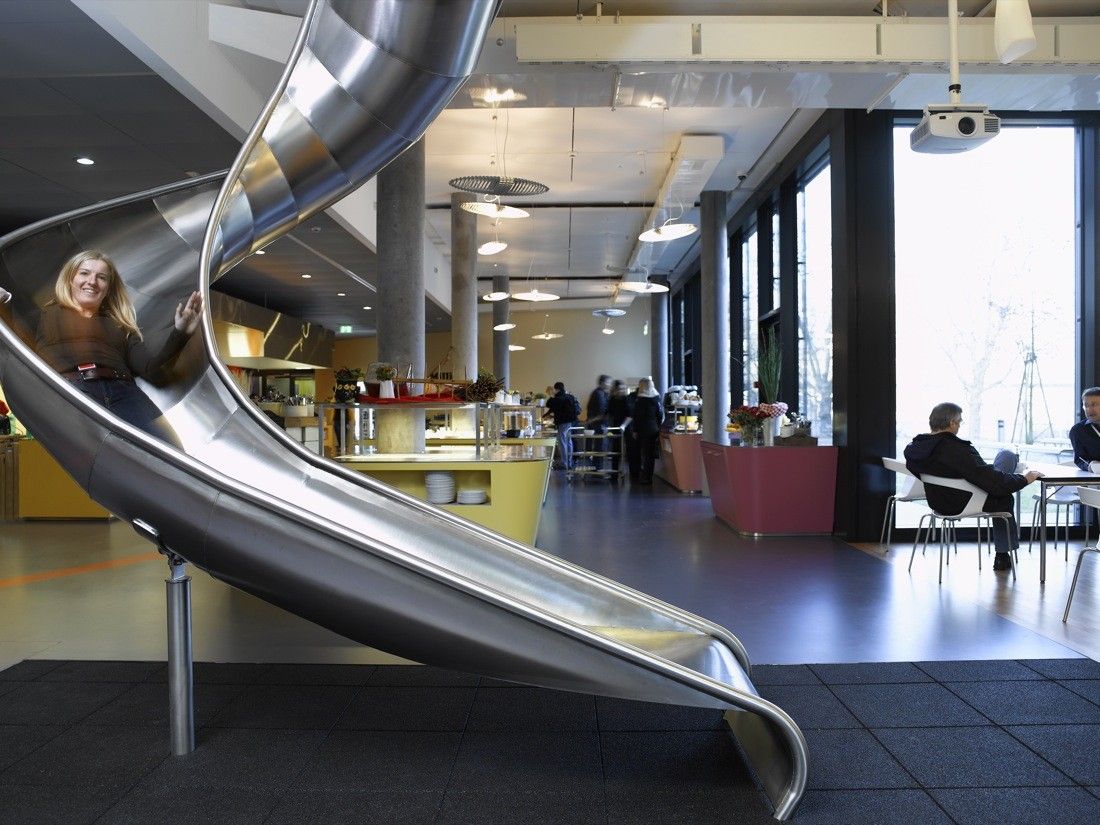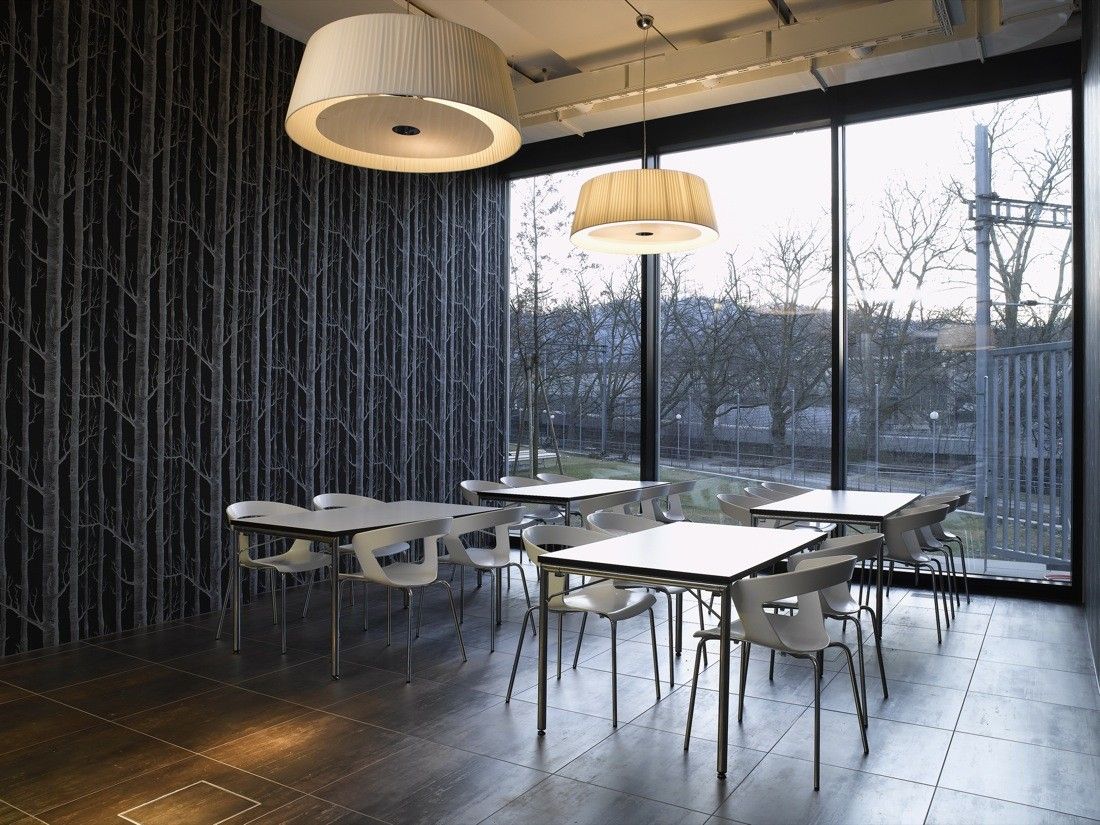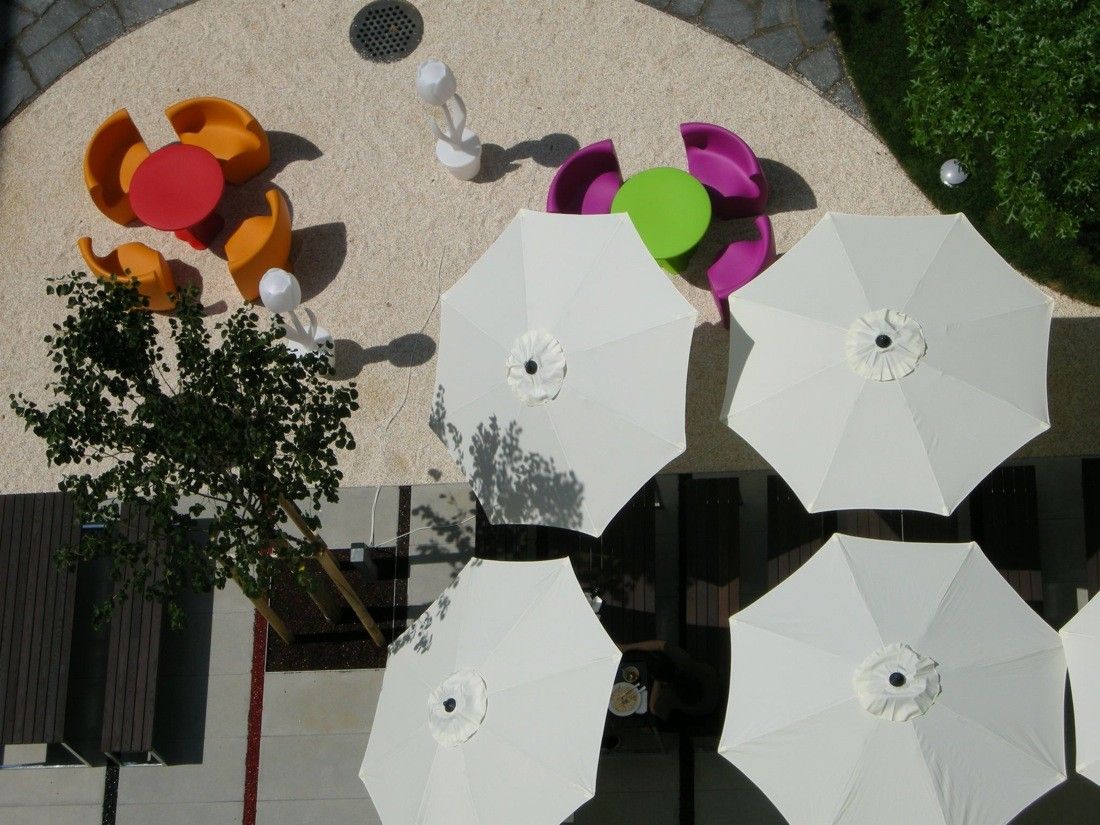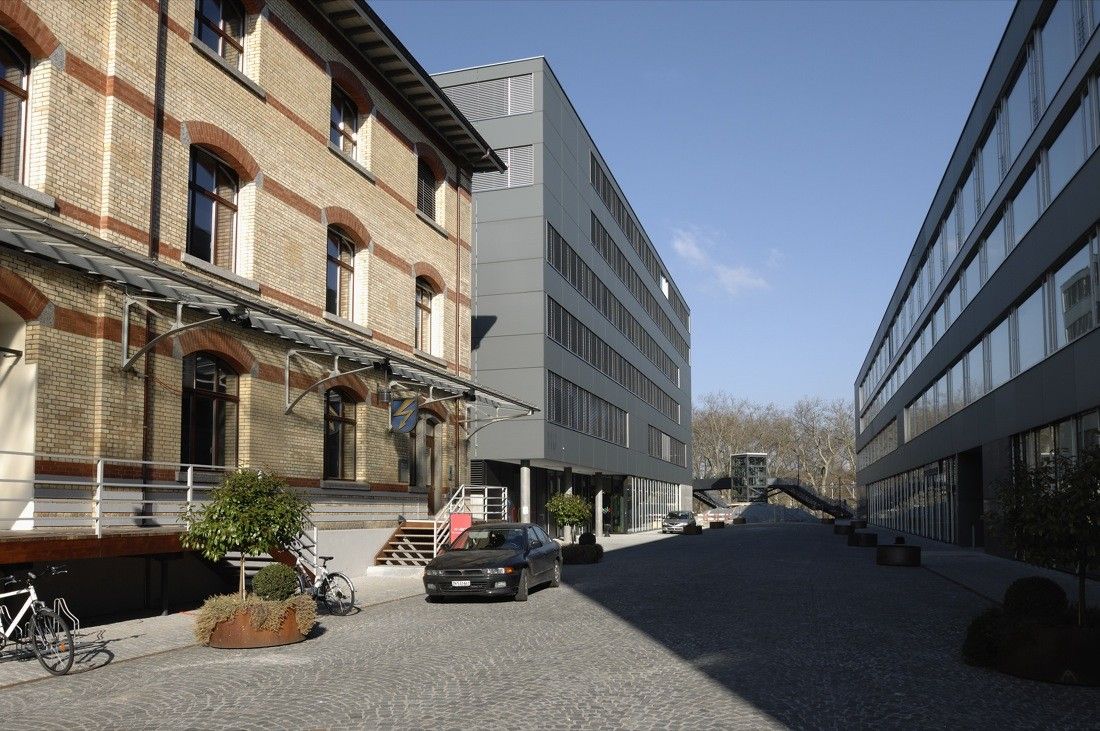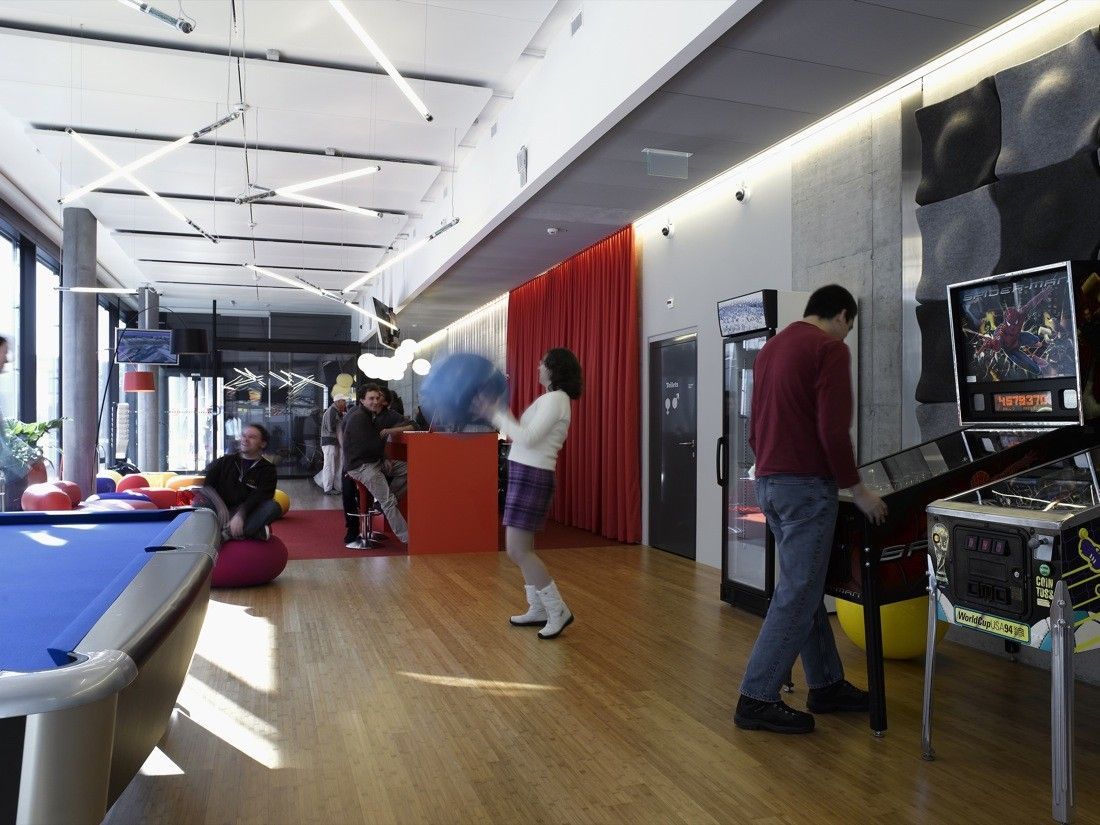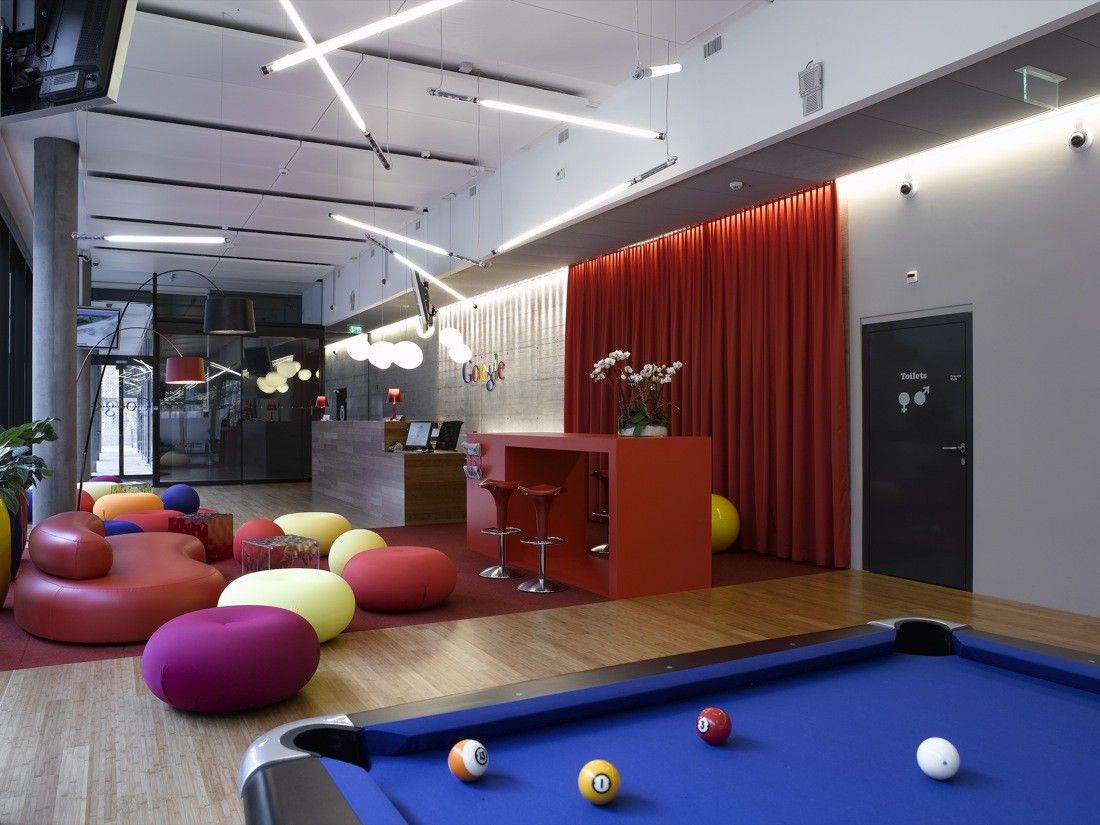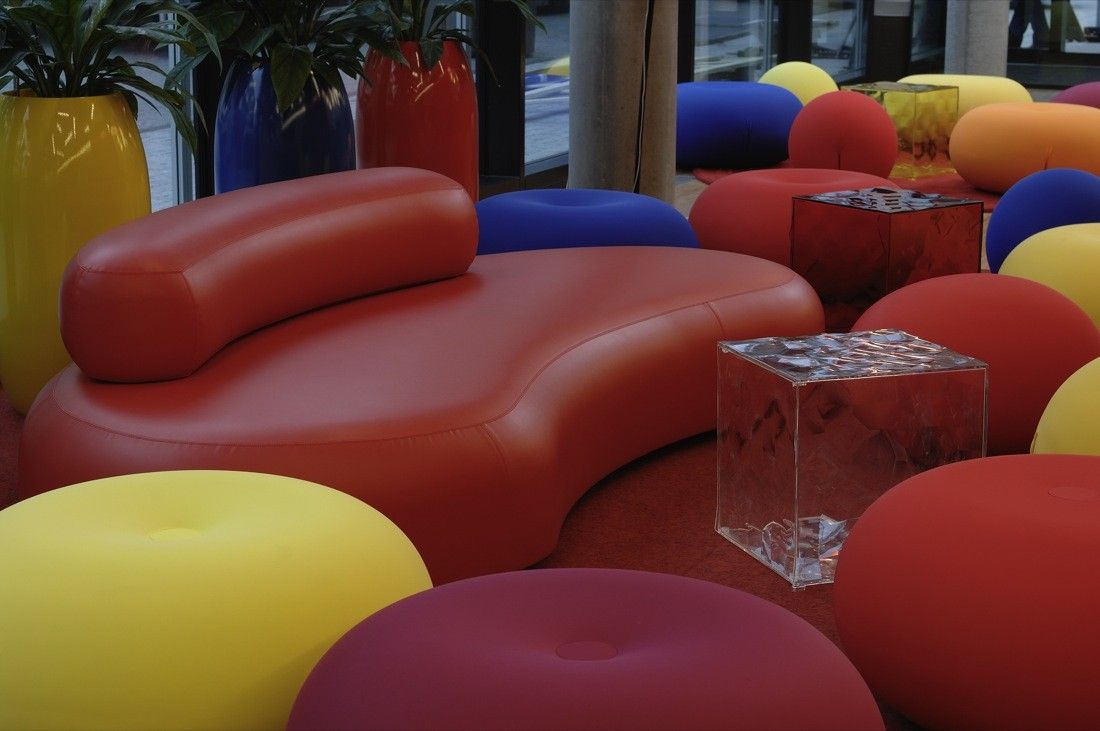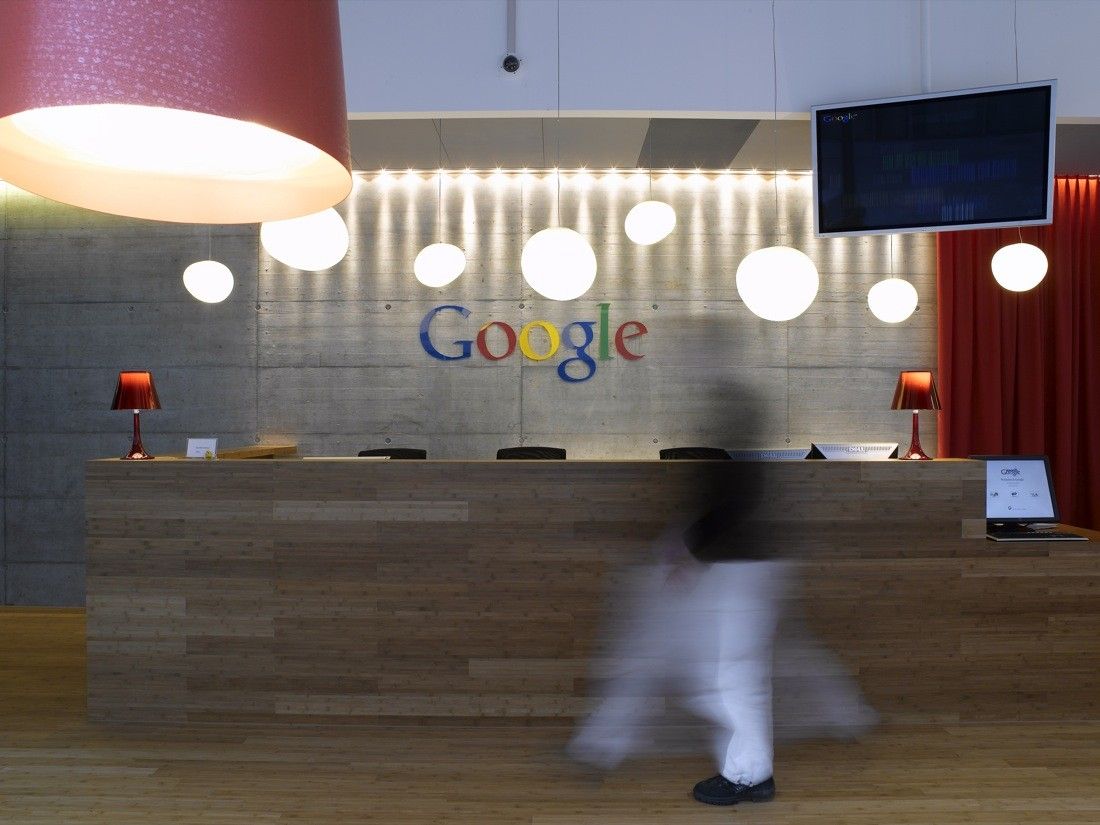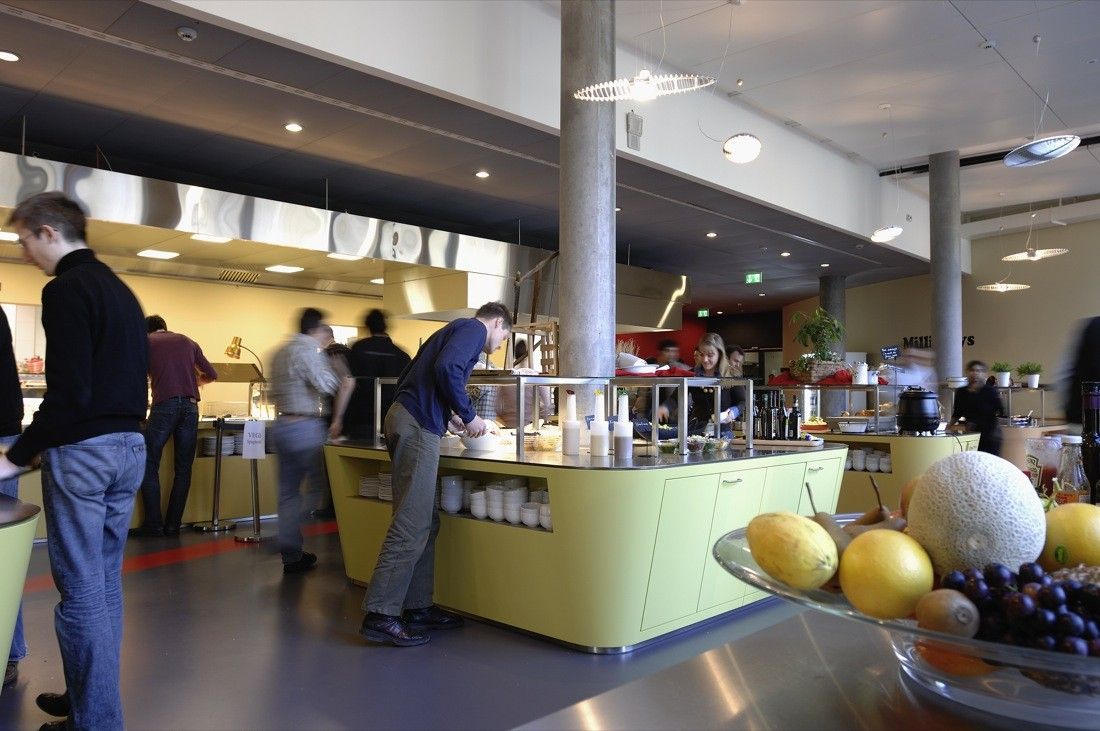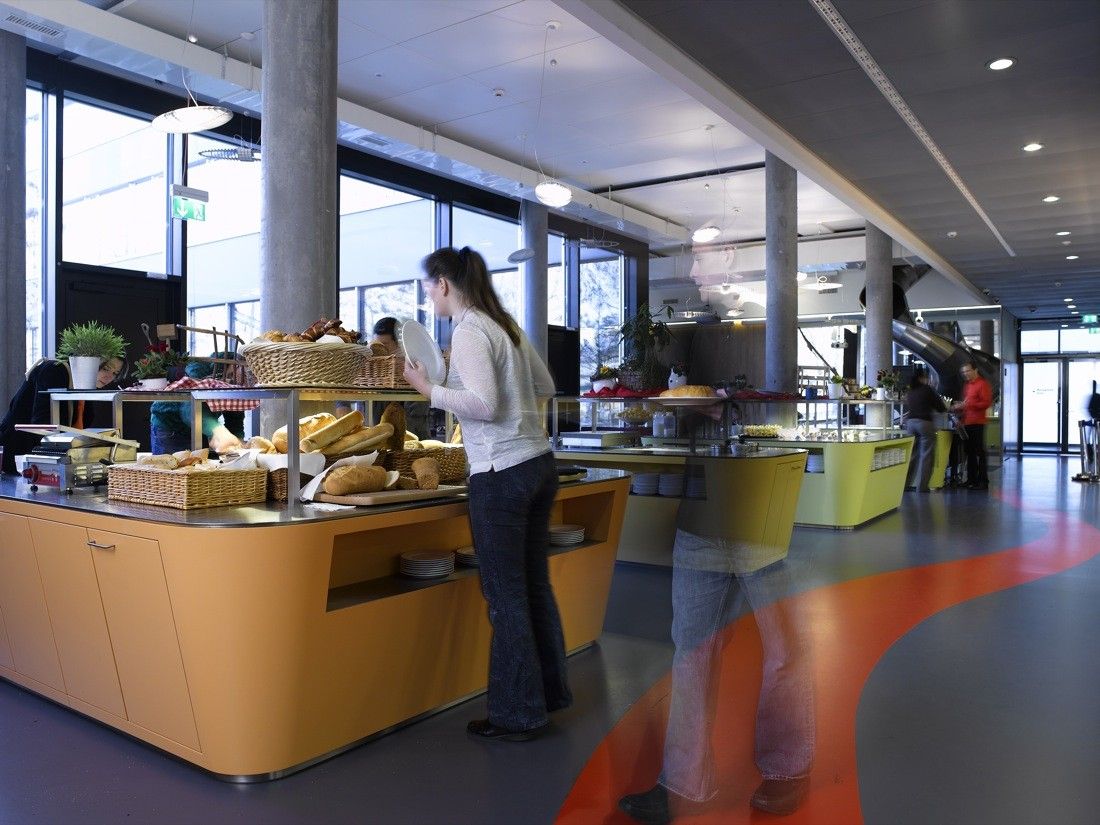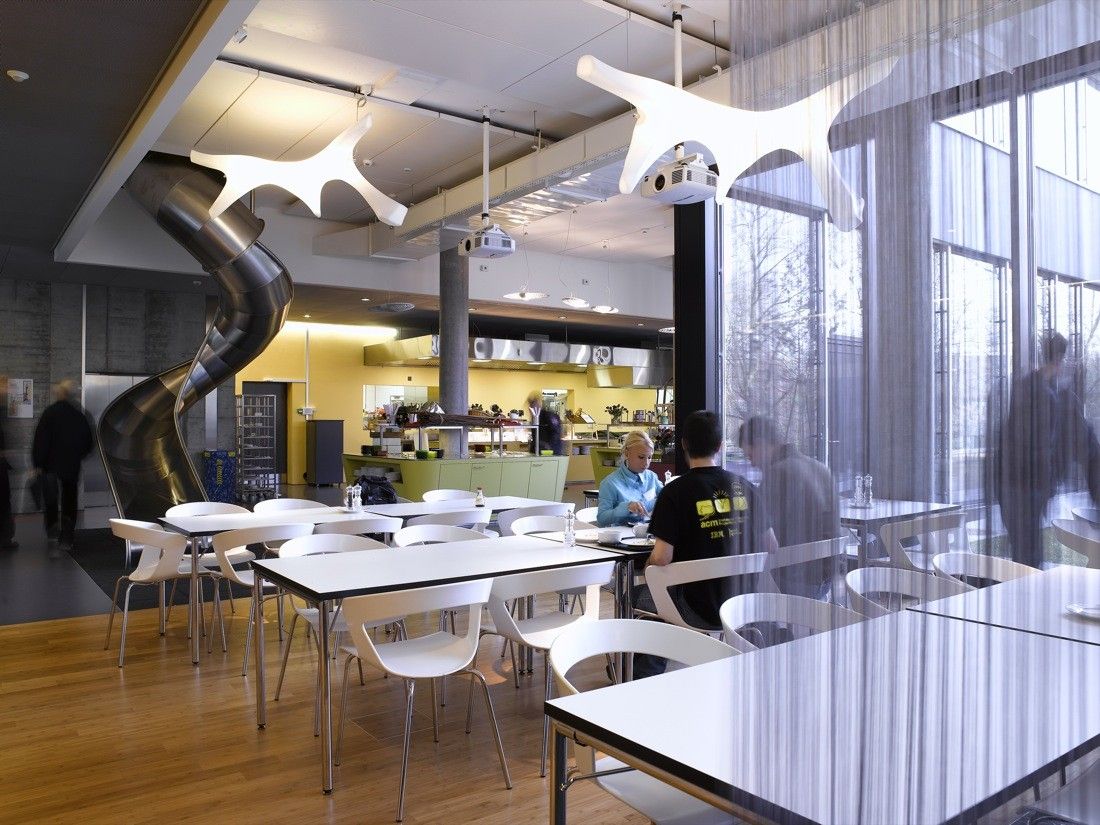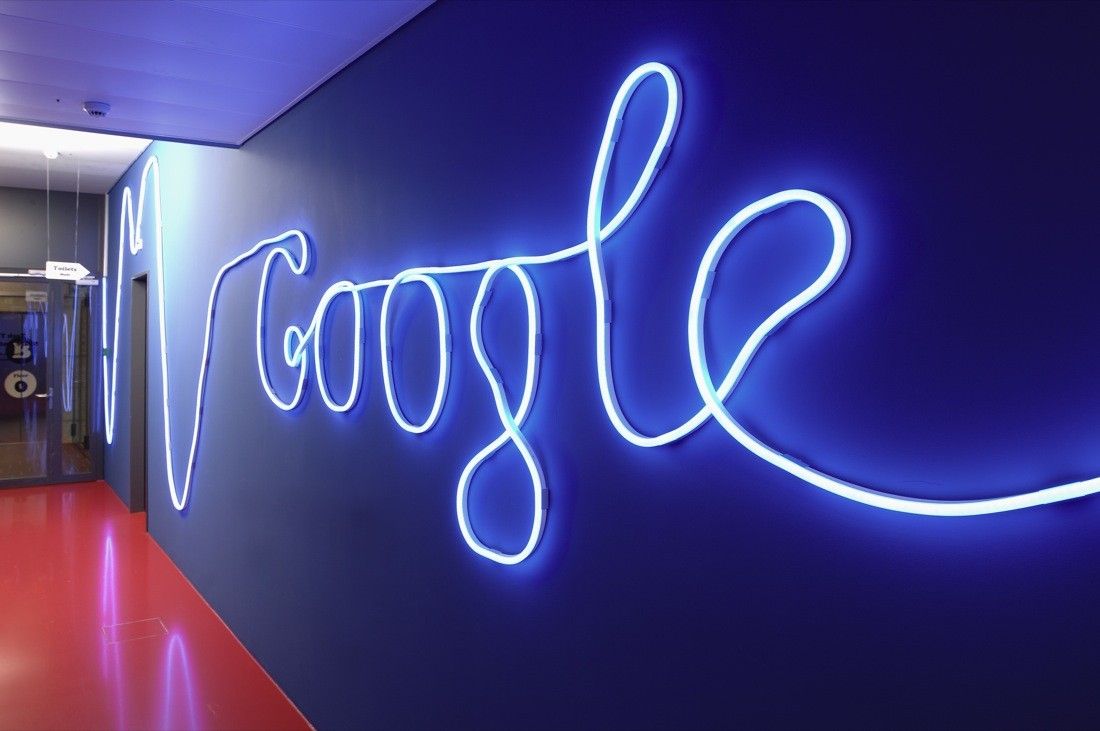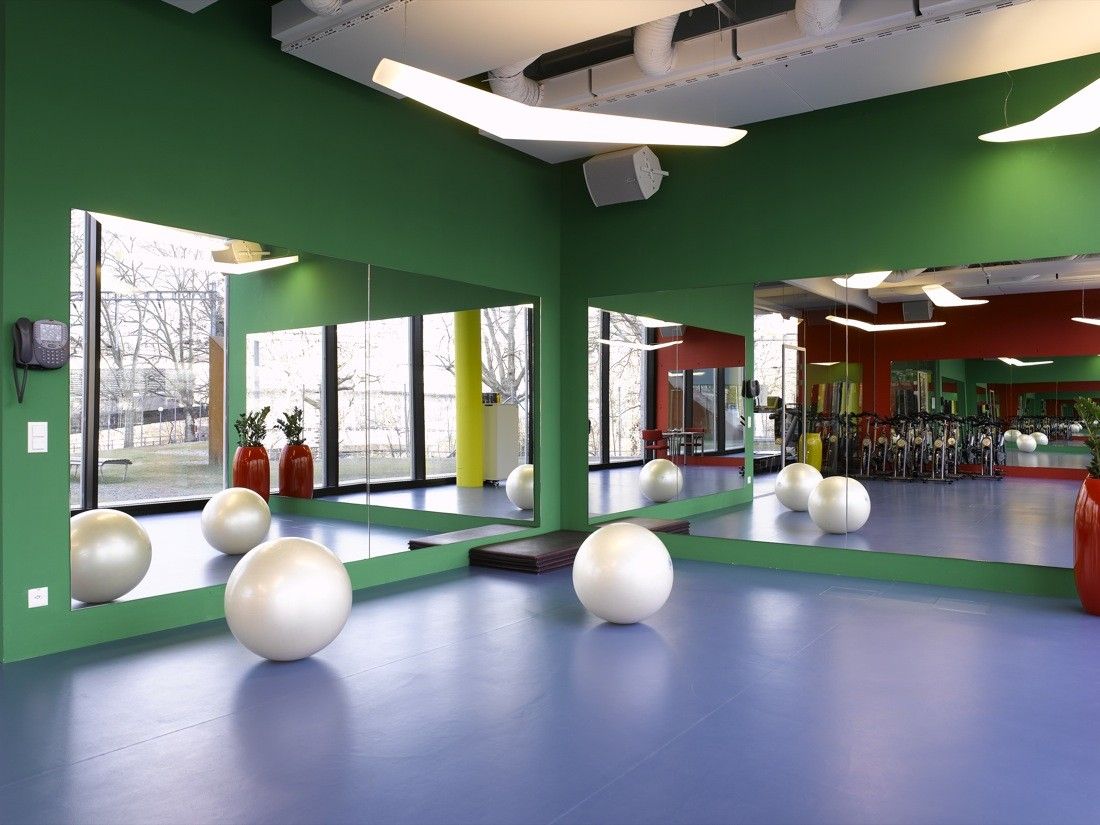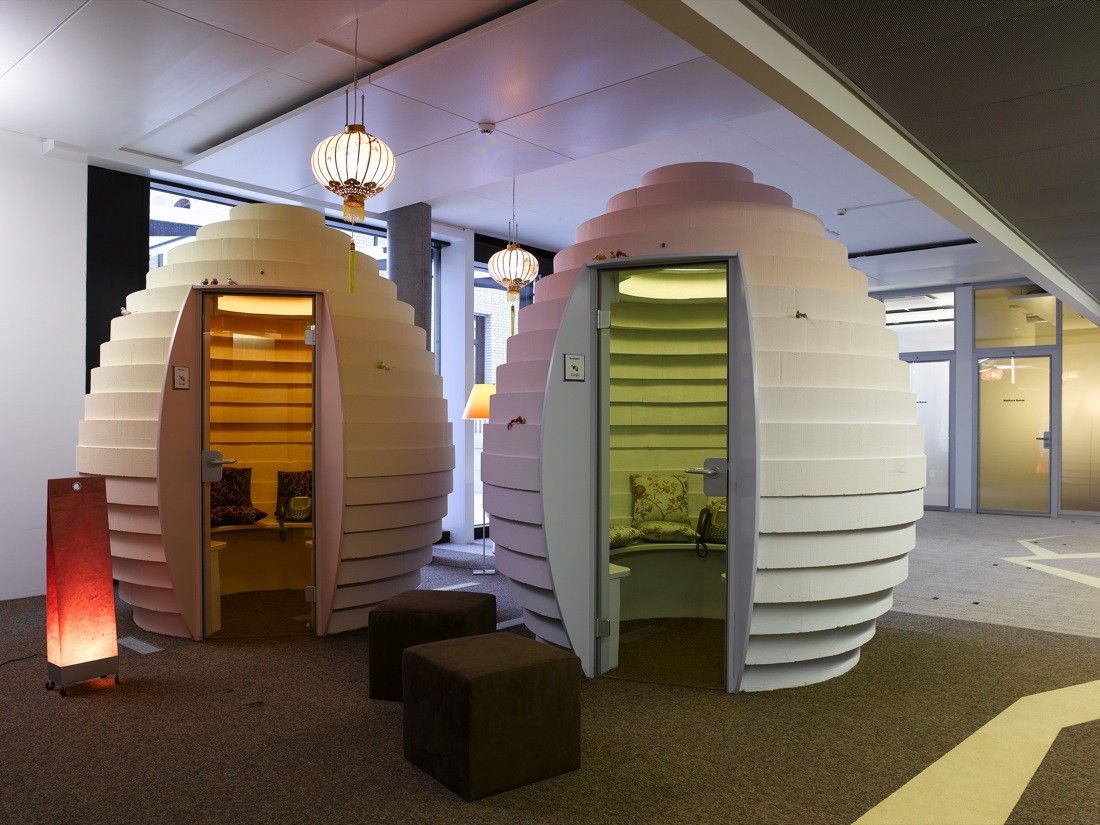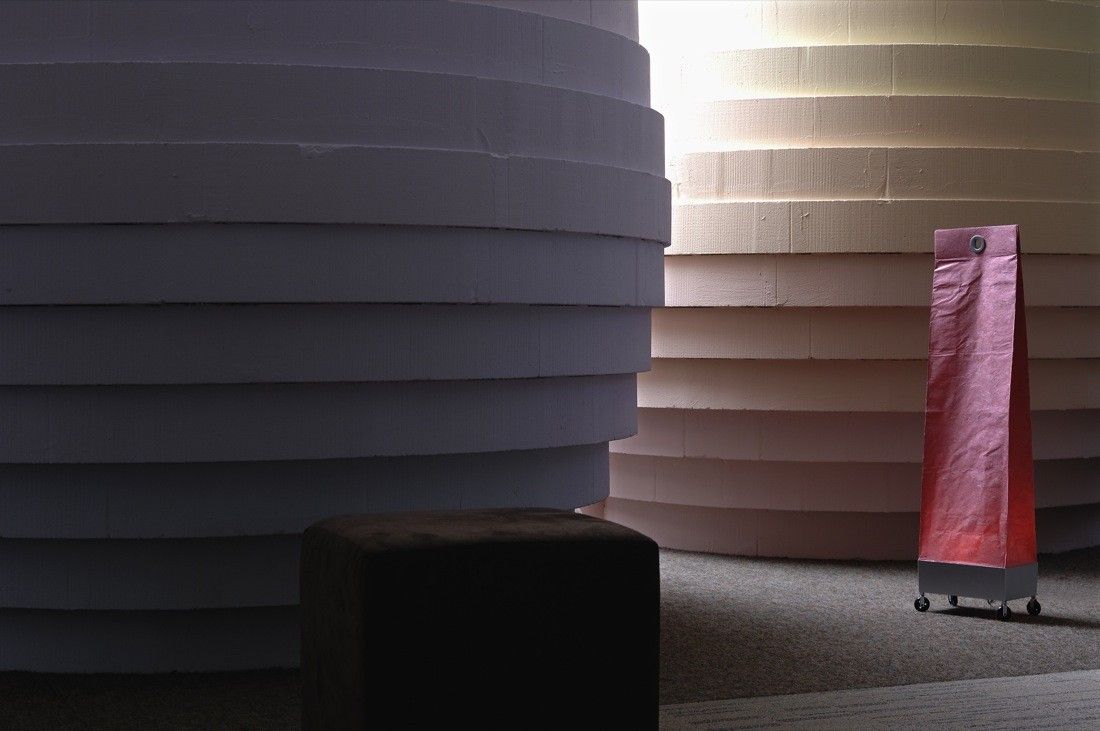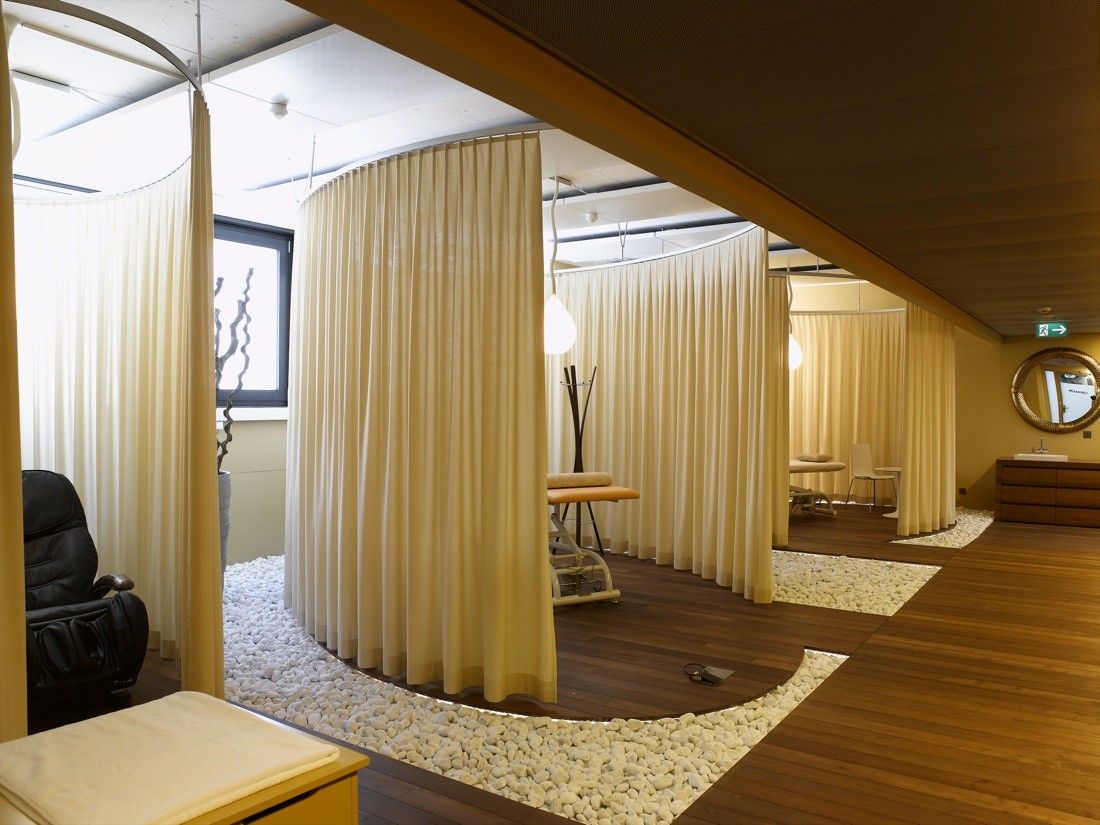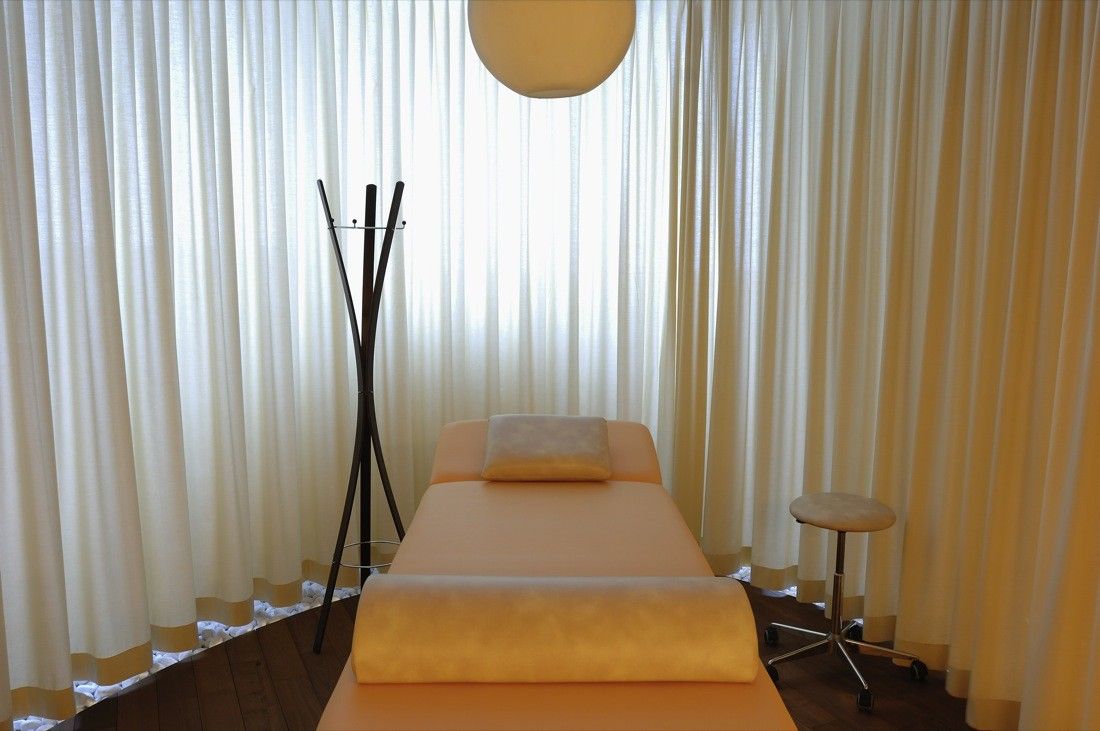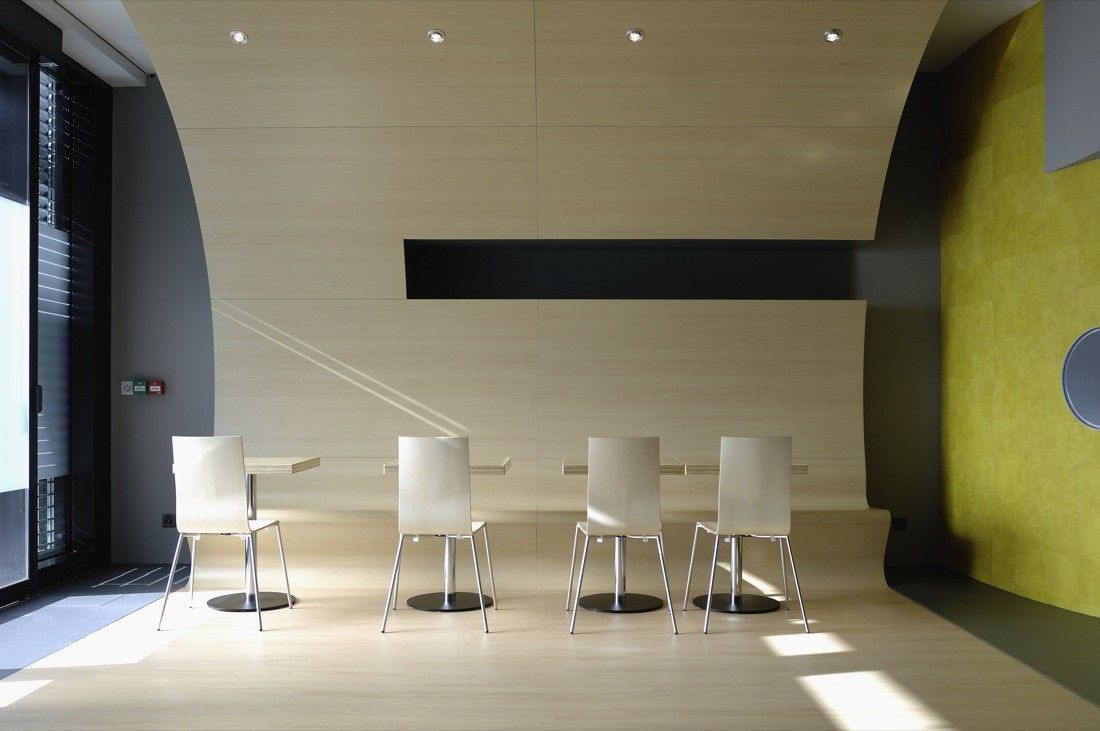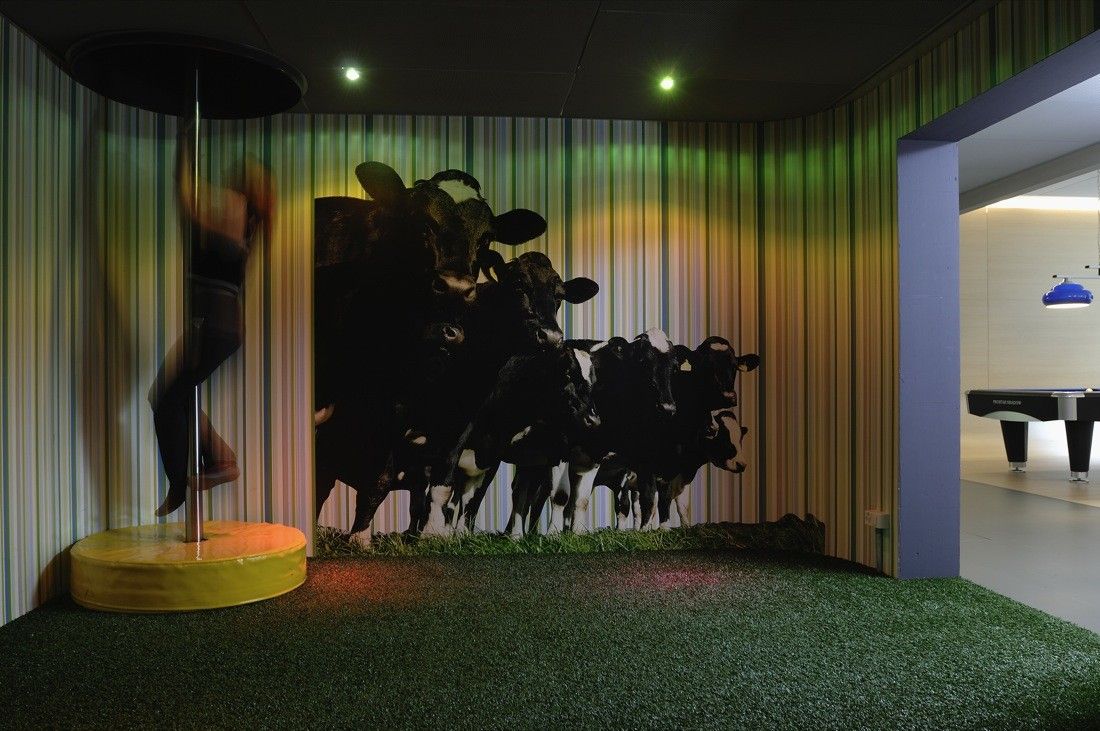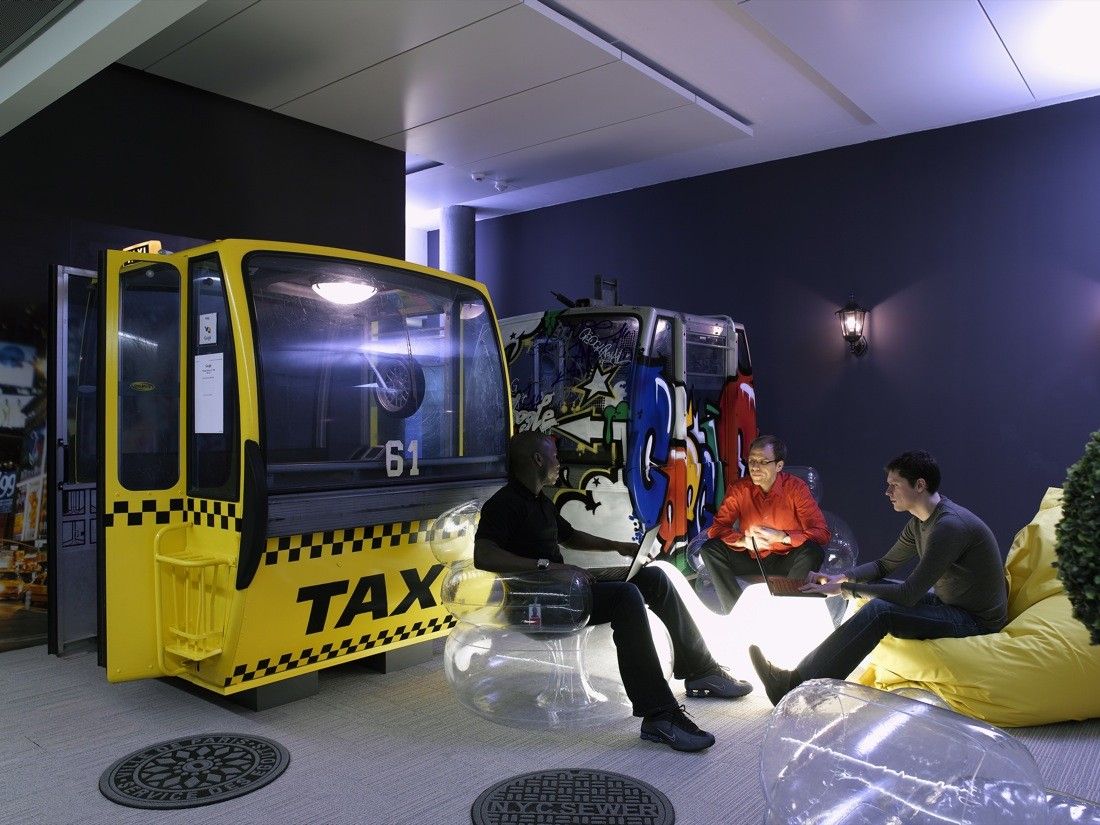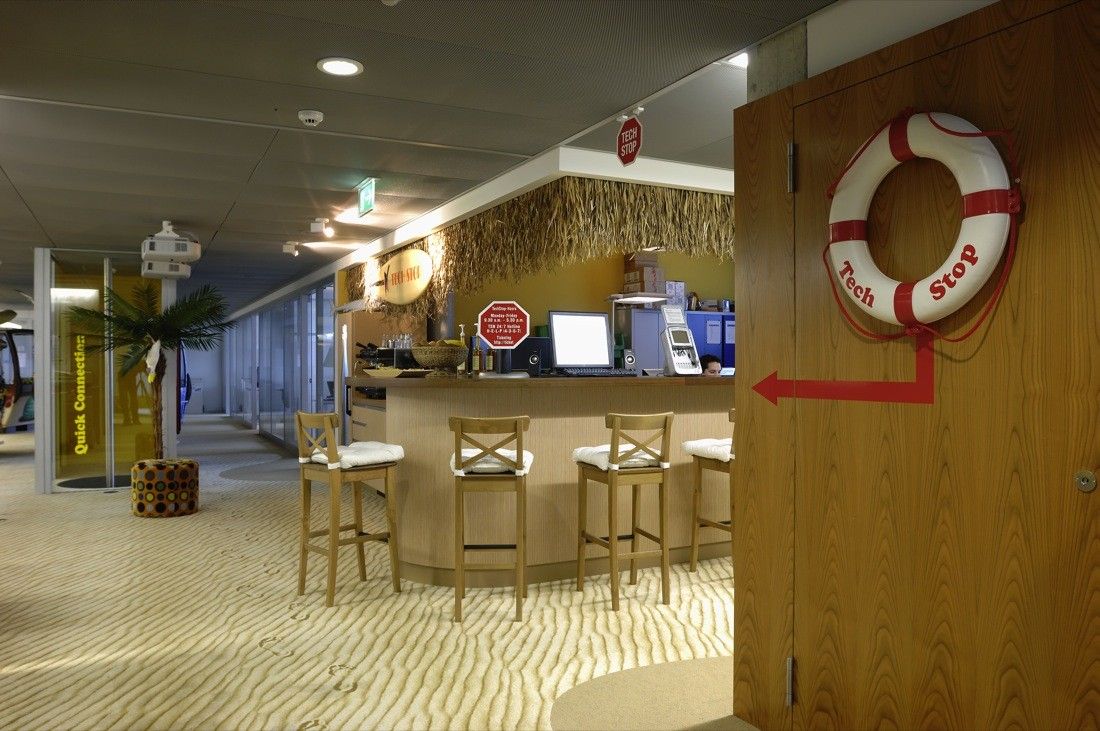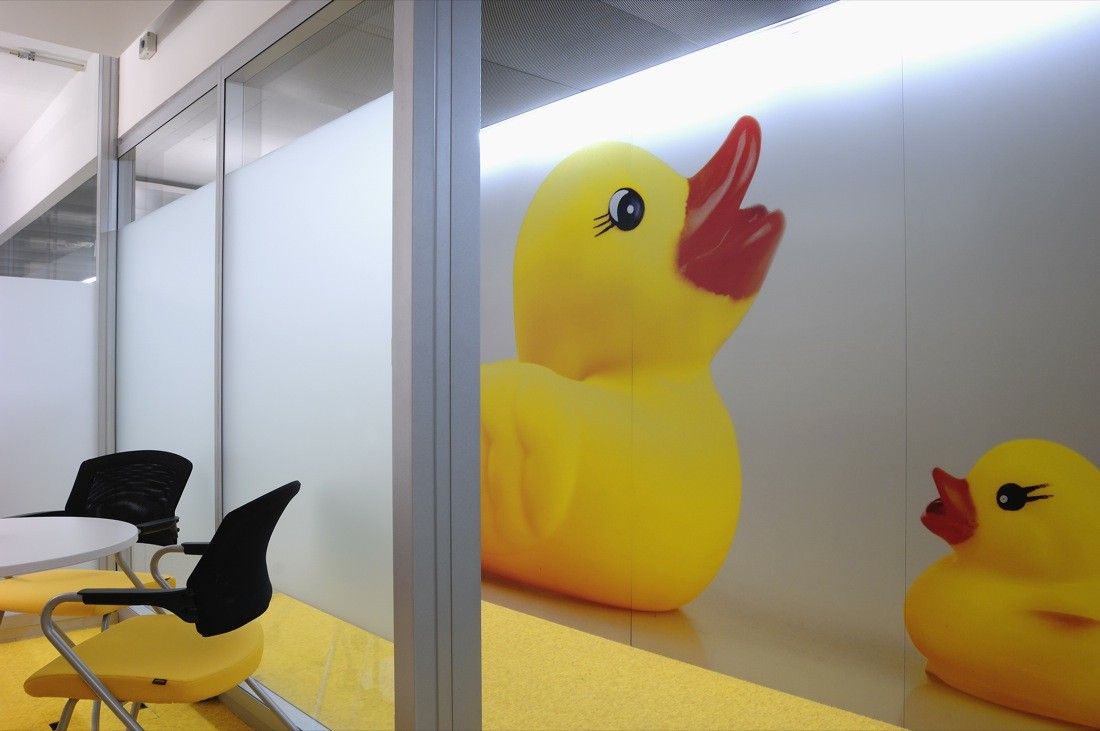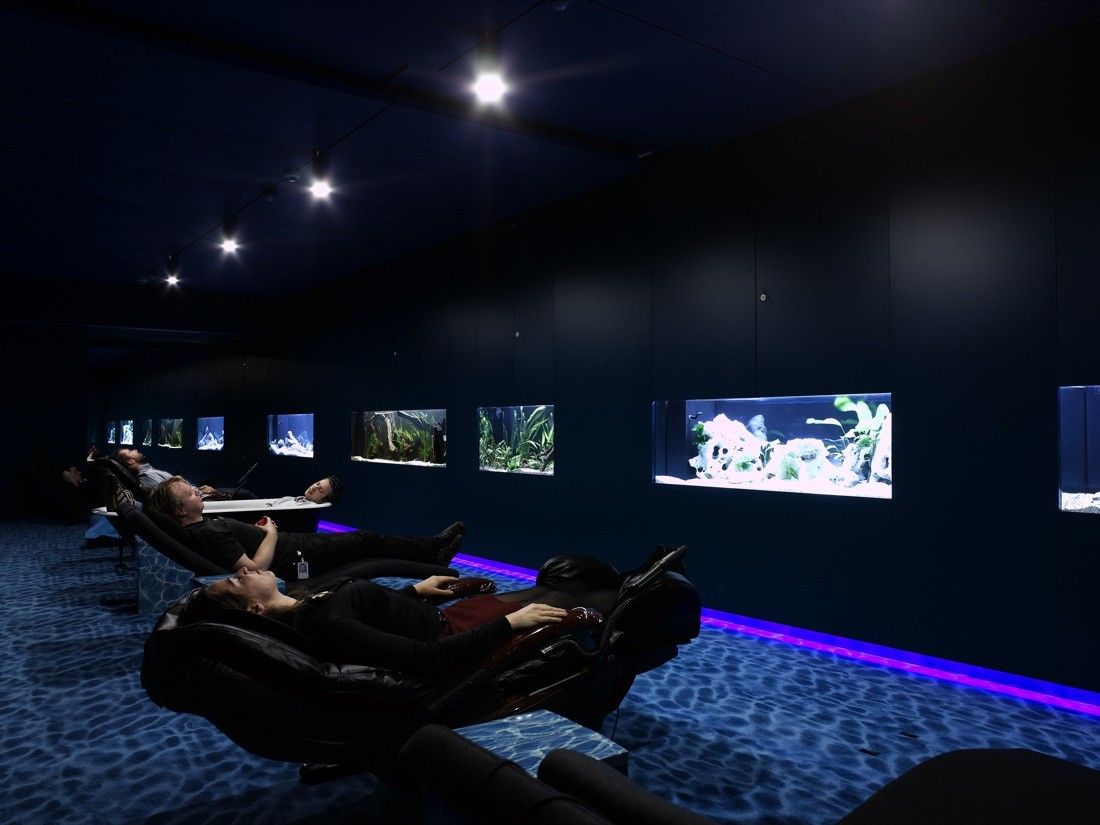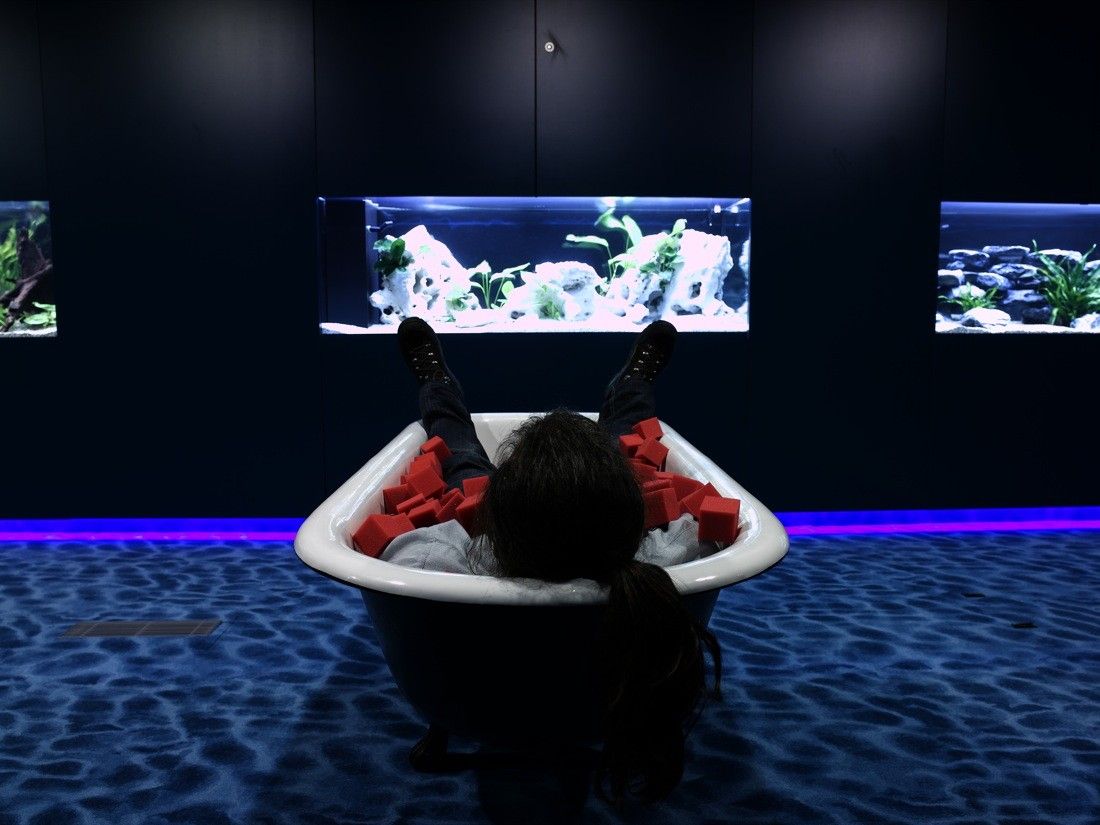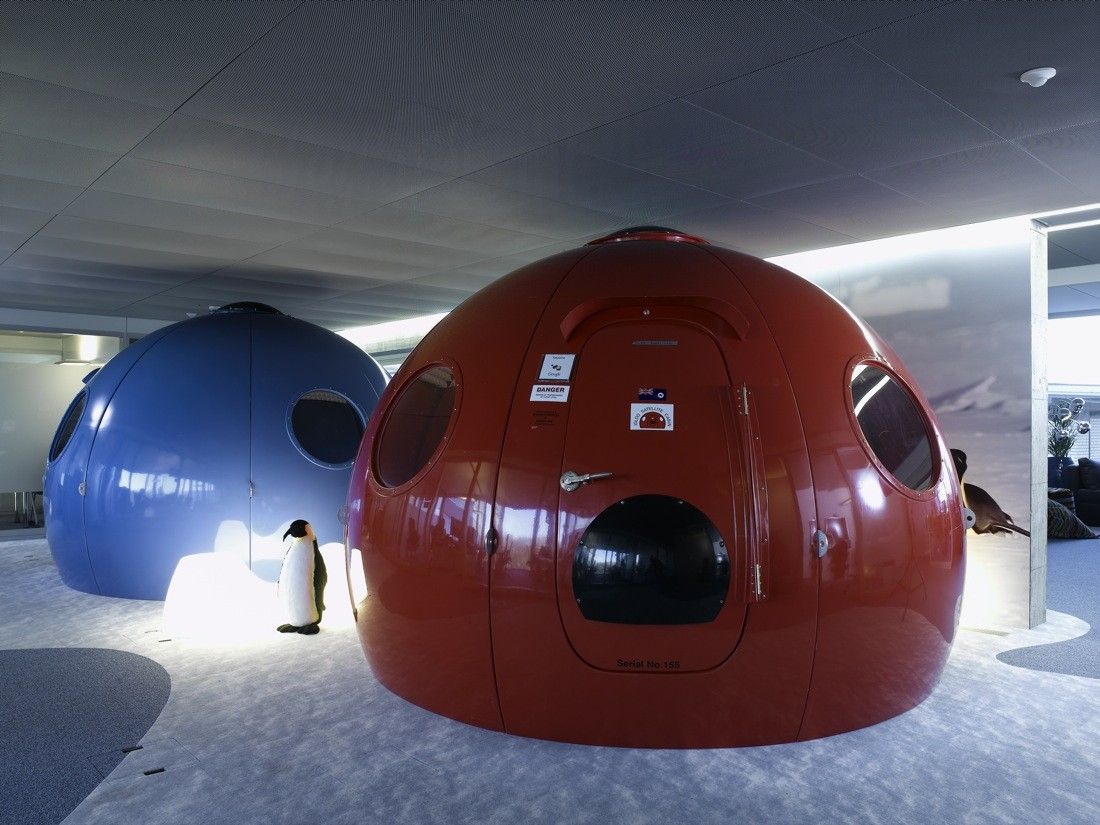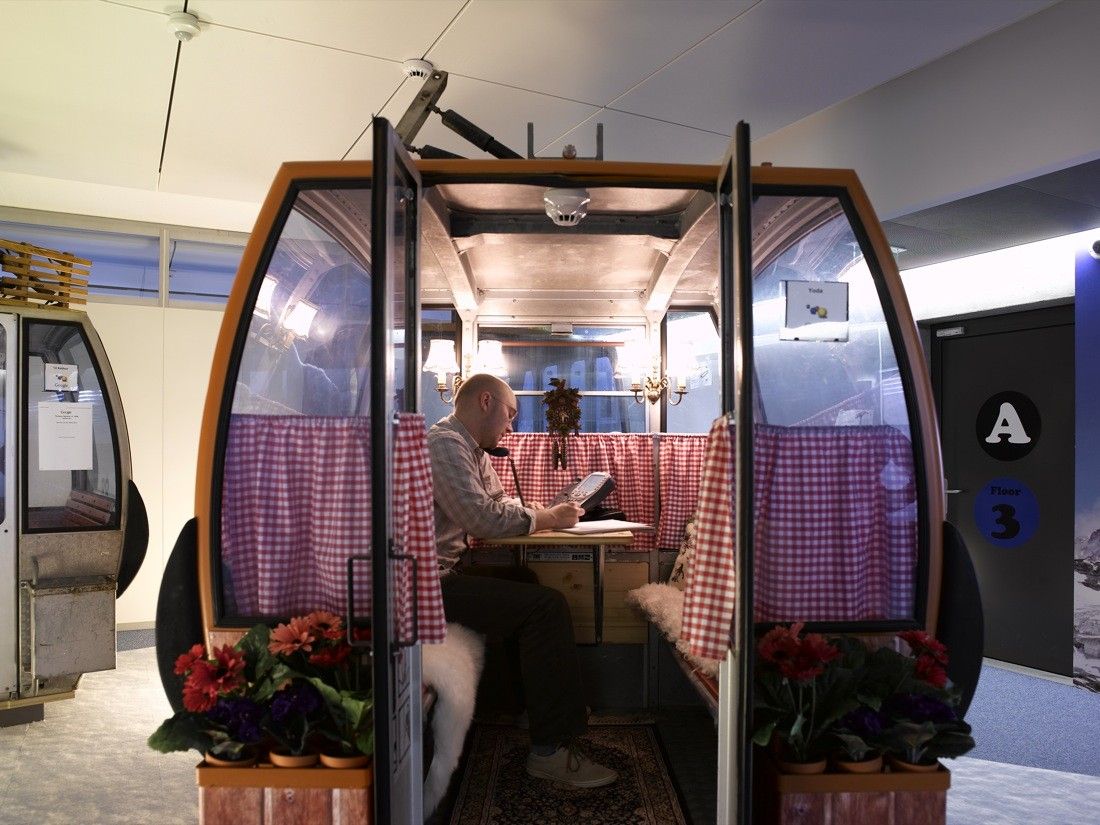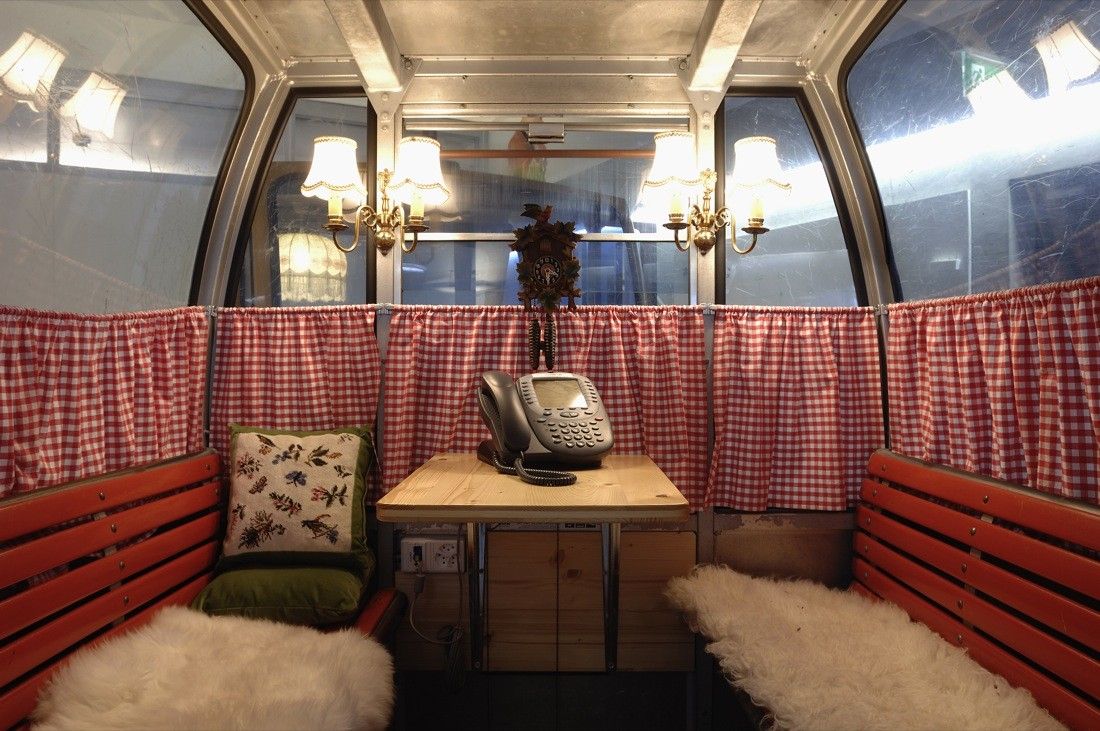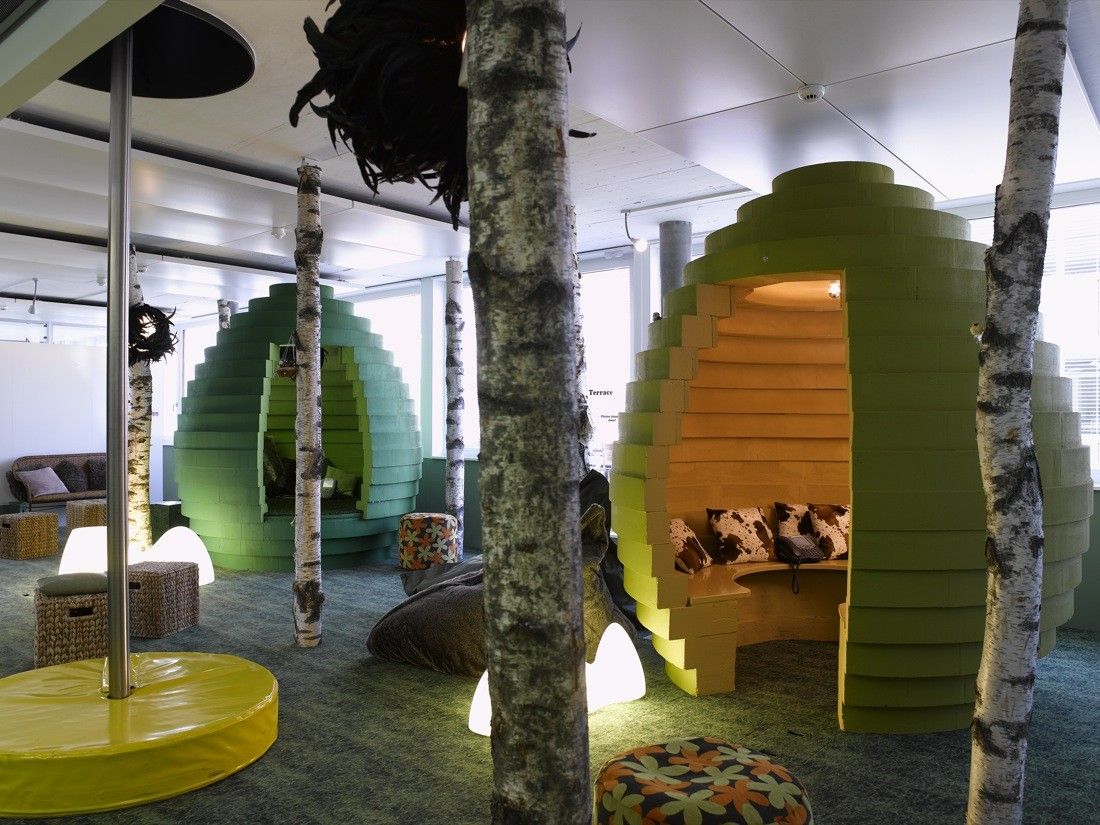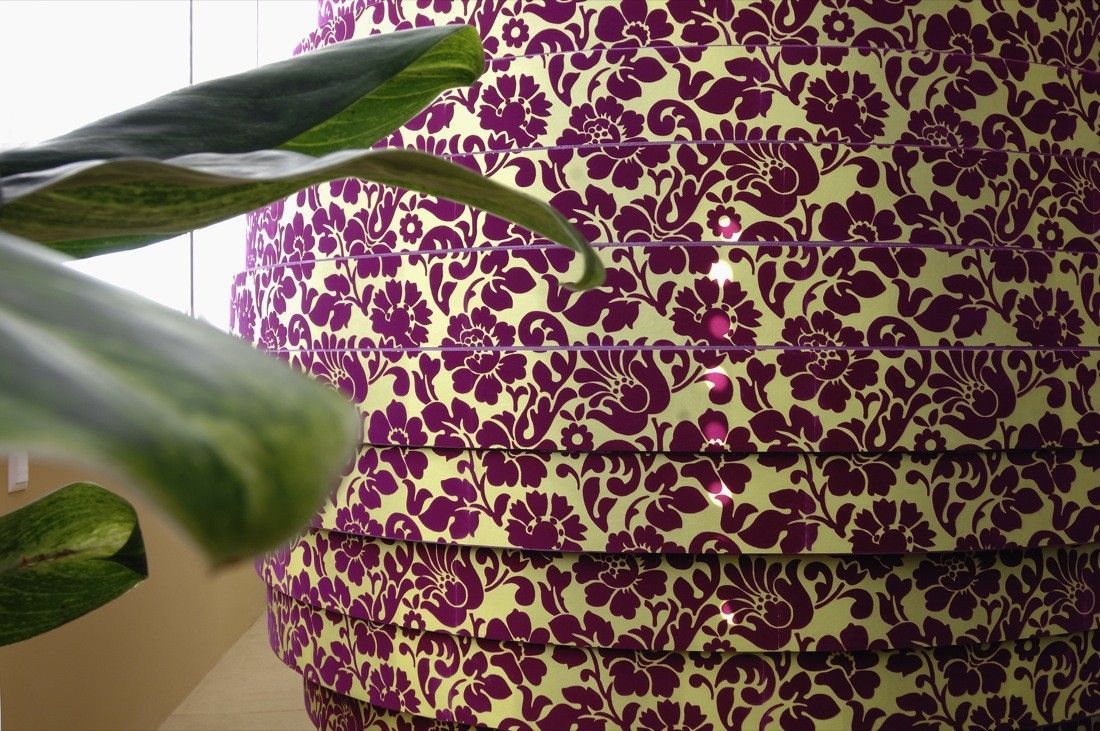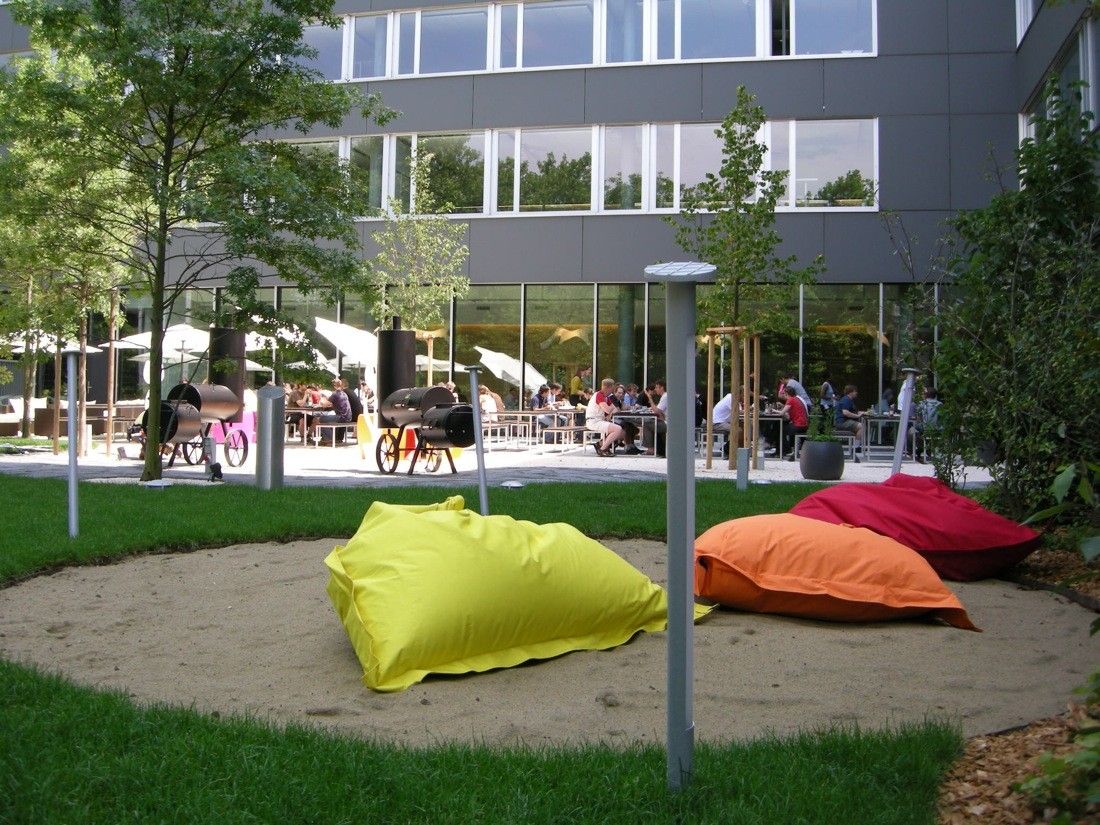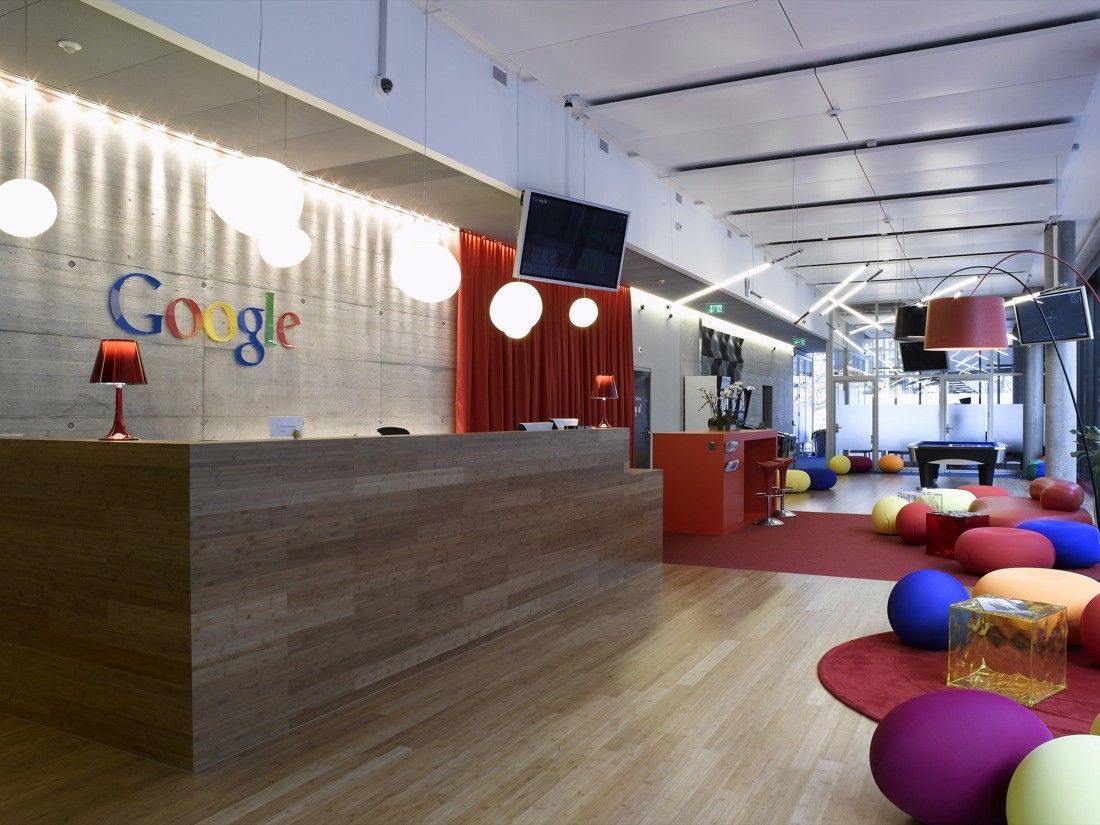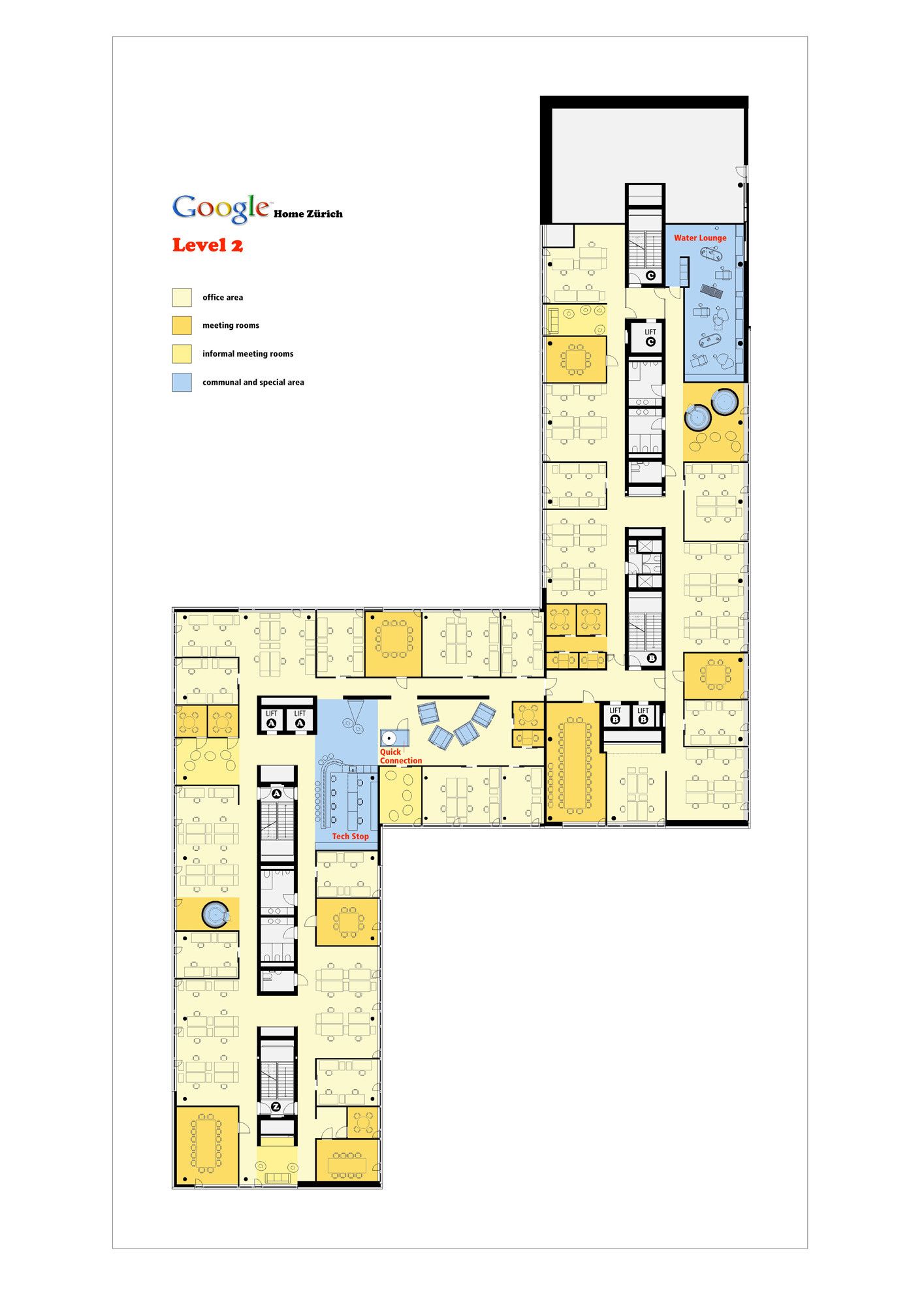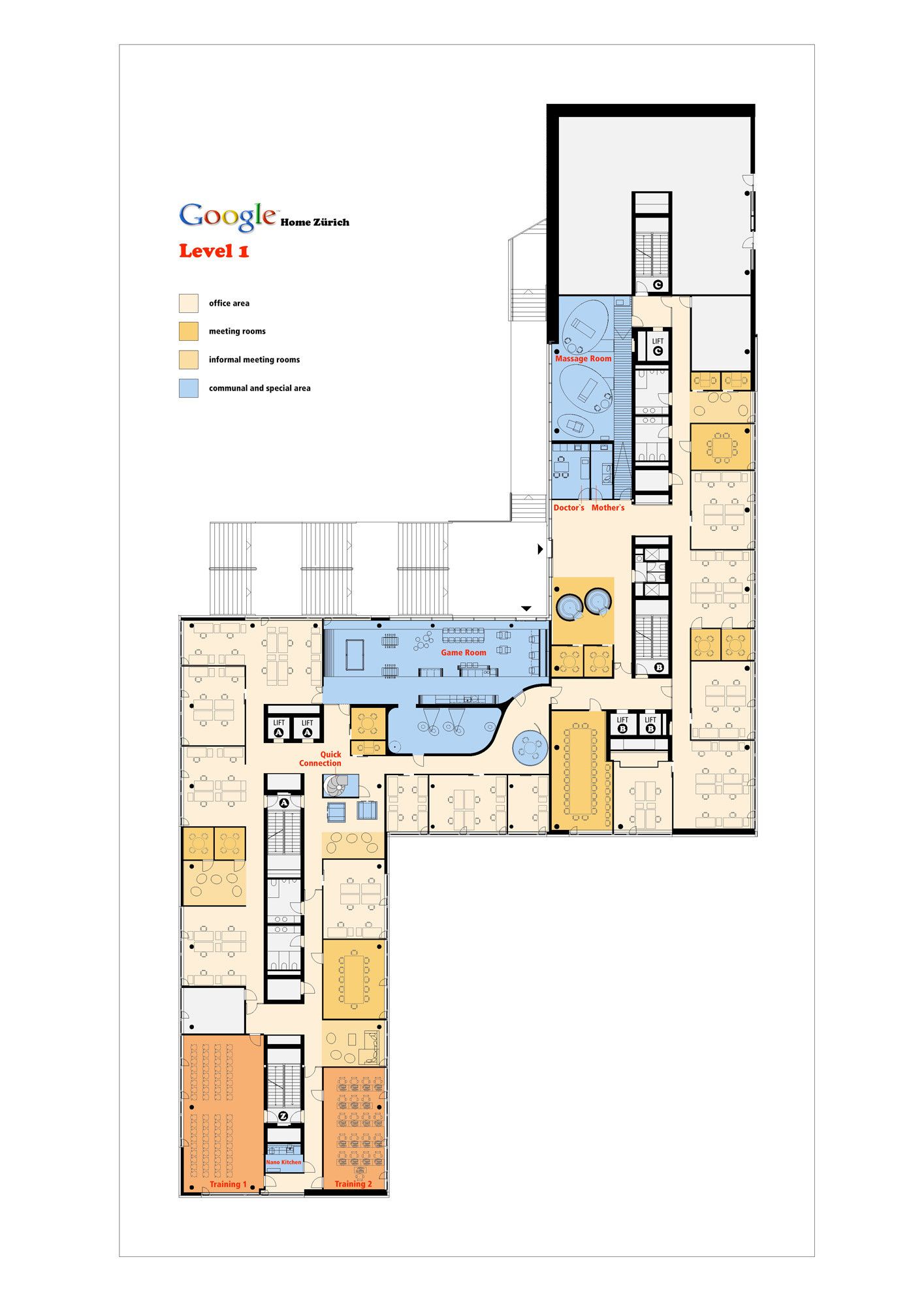Google is not a conventional company, and does not intend to become one. This is readily apparent in their new offices for Google’s EMEA Engineering Hub in Zurich, Switzerland, where the design cultivates an energized and inspiring work environment that is relaxed but focused, and buzzing with activities
The new EMEA Engineering Hub is located within the ‘Hurlimann Areal’ within easy walking distance of Zurich city centre. The site was originally a local brewery that has been regenerated into a vibrant mixed-use development of apartments, shops, offices and a spa hotel. The Google building is a contemporary seven storey shell and core office block offering 12’000 m2 floor area for up to 800 staff.
Google is in the process of rapid expansion in Zurich where the headcount has doubled in the last 12 months. The challenge for the architects was therefore to set up a tailor-made design and construction process, which would meet the tight time and budget constraints whilst endorsing a very broad participatory design methodology. Based on their method statements, Camenzind Evolution was selected in a competitive tender-interview process to become the lead architect and project manager for the interior design and fit-out of the new Google Engineering Hub.
Google celebrates individuality, creativity and innovative business practice within a high-energy environment and emphasises the importance of the individual and maintaining a small-company ambience throughout company growth.
A key element in the design approach was that the Googlers in Zurich (fondly referred to as Zooglers) should participate in the design process to create their own local identity. Under the guidance of the Director of International Real Estate at Google in Mountain View, an interactive and transparent approach to the architectural process was implemented from the beginning. A diverse team of local Zooglers were formed as the steering committee to represent the entire office. This committee reviewed, challenged and approved the design throughout the project. This unique method of engagement provided open collaboration, unique perspectives and ideas, and supplied a direct sense of ownership throughout the Zurich office. To this end Camenzind Evolution was neither given a specific brief nor a corporate identity manual and was explicitly asked not to research the organisation and design of other Google offices.
The architects began with a rapid process of research and analysis to map out the opportunities and challenges posed by the building as well as the emotional and practical requirements of the Zooglers. The latter was achieved by conducting a survey of all the Zooglers, complemented by a series of workshops and interviews. This research, guided by a psychologist, extended beyond purely functional aspects, and provided information about the Zooglers personality types, representational systems, values and motivational factors.
Although the details of the survey outcomes remain confidential, the process revealed that the optimal working environment for Zooglers needed to be diverse and at the same time harmonious whilst making it a fun and an enjoyable place to work in. The survey also showed that while personal workspace needed to be functional and more neutral, communal areas had to offer strong visual and more aesthetically enjoyable and entertaining qualities to stimulate creativity, innovation and collaboration.
Based on the survey, concept options were developed and presented. The Zooglers decided early on that they preferred to reduce their personal net area of workspace in order to gain more communal and meeting areas. The working areas were therefore designed with a high degree of space efficiency. Additionally, they had to be able to accommodate frequent staff rotation and growth. On average a Googler moves twice a year within the building, consequently the office layout was designed for maximum adaptability so that all groups and departments can use any part of the office space. The office areas are organised along a central core and are a mixture of open-plan workspaces for 6-10 people and enclosed offices for 4-6 people.
All office enclosures are constructed using a glass partition system, which maintains transparency and optimises daylight while reducing noise and achieving the required degree of privacy for working teams. Each office floor is colour-coded and themed for easy orientation, for example on the blue floor large photographs and graphics on the themes of water and snow enhance the colour concept and make it an integral part of the interior design.
The Zoogler engineers tackle some of the most interesting challenges in computing today. As many of the teams in Zurich work together with Google teams all over the world, meeting rooms fitted with video-conferencing equipment are very important. Consequently there are a large number of small to medium-size meeting rooms situated throughout the office space. Apart from the standard meeting rooms, there are also many informal meeting areas, which have a more relaxed atmosphere for teams to have creative discussion around white-boards. Some of them also incorporate the theme of the floor, like the Igloo Satellite Cabins with penguins and the original ski-gondolas in a snow-scape on the blue floor.
The concept of the communal areas relates directly to the project research conclusions and wider research that indicates relaxation to be crucial to innovation and stimulating original thought. Work and play are not mutually exclusive, or as Google puts it “it is possible to code and pass the puck at the same time”. Based on this concept Camenzind Evolution developed themed communal areas associated with sport and leisure, for example, an aquarium water lounge for relaxation and a games room to play billiards, table football and interactive video games. There is also an antique- themed library and a massage spa to soothe any tight shoulder muscles. Most of these spaces also contain ‘micro kitchens’ offering the Zooglers a variety of drinks and snacks throughout the day.
The diversity of the communal areas provides a great choice of distinctive emotional and visual experiences and activities. These ensure that there is a suitably relaxing or inspiring environment for the individual needs of the more than 50 nationalities represented in the Zurich office. The communal areas are intentionally dispersed throughout the building to encourage Zooglers to circulate throughout the seven floors to enhance communication between the different working groups and teams. In this way the building has evolved into a Google city with easy reference points for Zooglers and visitors to navigate the building. To allow speedy movement with fun between floors, “quick connections” comprising fire poles to slide down, link some of the communal areas with the floor above – making sure the Zooglers can reach their coffee that bit faster. And for the really hungry Zooglers, a steep and fast slide spirals down from the offices on the first floor directly into the centre of the Milliways cafeteria on the ground floor.
Food is very important to Google and the Zurich office is no exception. The Milliways cafeteria serves free breakfast, lunch and dinner and the chefs use only fresh, high quality ingredients and local produce to make healthy delicious food. Coming together for eating is also a great opportunity for the Zooglers to meet and talk to people they don’t work directly with. To balance the good food, a staffed gym offers yoga, Pilates and fitness classes and encourages the Zooglers to keep fit and healthy.
There are also a large number of technical talks at Google. Google ‘Tech Talks’ are designed to disseminate a wide spectrum of views on topics ranging from Current Affairs, Science and Engineering to Entertainment and the Arts. For these talks and many other events, conference facilities for up to 200 people have been designed on the ground floor.
Project Info :
Architects : Camenzind Evolution
Client : Google Inc.
Area : 12000.0 sqm
Project Year : 2007
Location : Zurich, Switzerland
Photographs : Camenzind Evolution
Catering Consultant : Planbar Ltd.
Site Managment : Quadras Baumanagement Ltd.
Project Team : Stefan Camenzind, Tanya Ruegg
Building Engineering : Amstein + Walthert Ltd.
Office Furniture Consultant : Büronauten Ltd.
photography by © Camenzind Evolution
photography by © Camenzind Evolution
photography by © Camenzind Evolution
photography by © Camenzind Evolution
photography by © Camenzind Evolution
photography by © Camenzind Evolution
photography by © Camenzind Evolution
photography by © Camenzind Evolution
photography by © Camenzind Evolution
photography by © Camenzind Evolution
photography by © Camenzind Evolution
photography by © Camenzind Evolution
photography by © Camenzind Evolution
photography by © Camenzind Evolution
photography by © Camenzind Evolution
photography by © Camenzind Evolution
photography by © Camenzind Evolution
photography by © Camenzind Evolution
photography by © Camenzind Evolution
photography by © Camenzind Evolution
photography by © Camenzind Evolution
photography by © Camenzind Evolution
photography by © Camenzind Evolution
photography by © Camenzind Evolution
photography by © Camenzind Evolution
photography by © Camenzind Evolution
photography by © Camenzind Evolution
photography by © Camenzind Evolution
photography by © Camenzind Evolution
photography by © Camenzind Evolution
photography by © Camenzind Evolution
photography by © Camenzind Evolution
Plan
Plan


